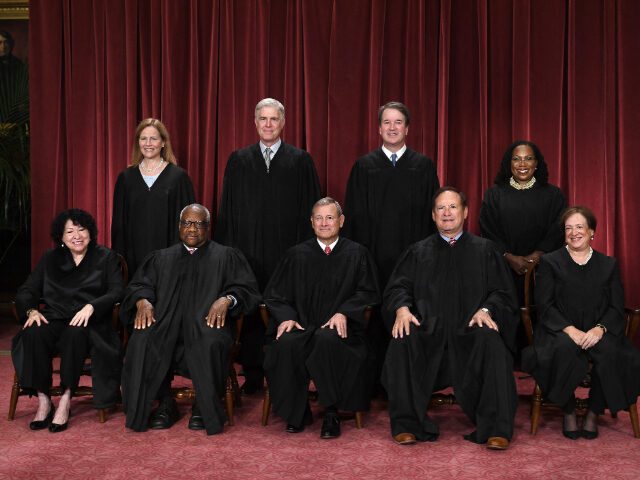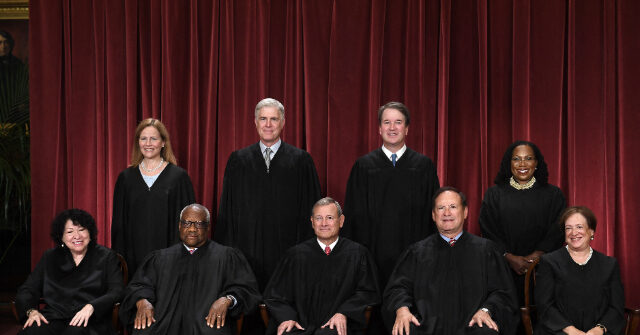SCOTUS Rules Trump Can End Biden’s Mass Migration Pipeline Pending Appeal
2,907
John Binder30 May 20253,224
2:51
The Supreme Court of the United States (SCOTUS) ruled on Friday that President Donald Trump can move forward with ending former President Joe Biden’s parole pipeline for migrants while the case makes its way through an appellate court.
In March, the Trump administration revoked the legal status of more than 530,000 migrants from Cuba, Haiti, Nicaragua, and Venezuela who were allowed into the U.S. interior via a Biden-era parole pipeline known as the CHNV program.
Following the announcement, two non-governmental organizations (NGOs) partially funded by Alex and George Soros’s Open Society Foundations sued the Trump administration to keep the parole pipeline intact.
Later, Obama-appointed U.S. District Judge Indira Talwani sided with the Soros-funded NGOs and blocked Trump from ending Biden’s CHNV program. Talwani, as Breitbart News reported, has past ties to Democrats, including volunteering for Obama’s presidential campaign.
SCOTUS, in a 7-2 decision with Justices Ketanji Brown Jackson and Sonia Sotomayor dissenting, ruled that Trump can end the parole pipeline while the case is pending appeal:
President Trump keeps on winning.
Weeks ago, the Trump administration had urged SCOTUS to allow officials to end the parole pipeline while the case made its way through lower courts, arguing that such courts have no authority to “needlessly upending critical immigration policies that are carefully calibrated to deter illegal entry, vitiating core Executive Branch prerogatives, and undoing democratically approved policies that featured heavily in the November election.”The April 15, 2025 order entered by the United States District Court for the District of Massachusetts, case No. 1:25–cv–10495, is stayed pending the disposition of the appeal in the United States Court of Appeals for the First Circuit and disposition of a petition for a writ of certiorari, if such a writ is timely sought. Should certiorari be denied, this stay shall terminate automatically. In the event certiorari is granted, the stay shall terminate upon the sending down of the judgment of this Court.

SCOTUS Rules Trump Can End Biden's Mass Migration Pipeline
SCOTUS ruled on Friday that President Donald Trump can move forward with ending former President Joe Biden's parole pipeline for migrants while the case makes its way through an appellate court.
Last edited:
